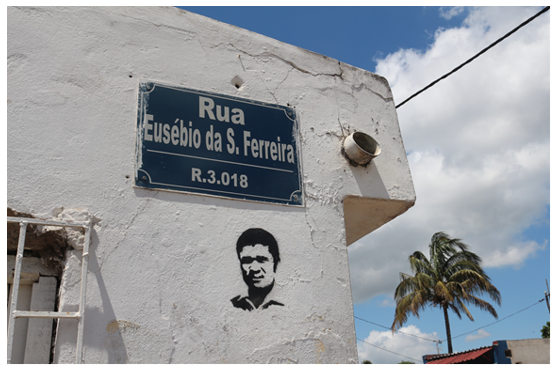Spectator Violence in Stadiums Why do the Hooligans Fight? An Essay in Honor of Eric Dunning
Main Article Content
Abstract
The study revisits the work of the Leicester School, highlighting the prominent figure of Eric Dunning, disciple of Norbert Elias and systematizer of the ideas of the German sociologist in England, leader in the process of constituting a sociology of modern sports in that country. In the poorly drawn lines that the freedom of the essayistic genre entails, we suggest that Dunning's position as Elias' apprentice soon becomes even and turns into a fruitful partnership. More: as a partner, he rises to the status of master himself, able to train new scholars and organize a series of collections together with his disciples. The broad theme provided by the focus of sports studies is restricted here to a specific agenda for analysis, namely the so-called phenomenon of hooliganism, to which Eric Dunning and his team devoted much of the analytical efforts of interpretation, reviewing assumptions of the first authors dedicated to the theme and carrying out a range of institutional collective research. These, in turn, led to the creation of theoretical and empirical references throughout the 1970s to 2000, with international repercussions among researchers focused on understanding not only British hooligans, but European ultras, Latin American barras, and Brazilian torcidas organizadas. If Dunning's theory and empiricism are not immune to criticism – as in the limit no scientific paradigm is –, in this text, the sociological, anthropological and historiographic contributions made by this admirable English intellectual are reiterated.
Downloads
Article Details
Section

This work is licensed under a Creative Commons Attribution 4.0 International License.
Autores que publicam nesta revista concordam com os seguintes termos:
1. Autores mantém os direitos autorais e concedem à revista o direito de primeira publicação, com o trabalho simultaneamente licenciado sob a Licença Creative Commons Attribution que permite o compartilhamento do trabalho com reconhecimento da autoria e publicação inicial nesta revista.
2. Autores têm autorização para assumir contratos adicionais separadamente, para distribuição não-exclusiva da versão do trabalho publicada nesta revista (ex.: publicar em repositório institucional ou como capítulo de livro), com reconhecimento de autoria e publicação inicial nesta revista.
3. Autores têm permissão e são estimulados a publicar e distribuir seu trabalho online (ex.: em repositórios institucionais ou na sua página pessoal) a qualquer ponto antes ou durante o processo editorial, já que isso pode gerar alterações produtivas, bem como aumentar o impacto e a citação do trabalho publicado (veja O Efeito Acesso Livre).
How to Cite
References
ARMSTRONG, Gary. Football hooligans: knowing the score. London: Berg Publishers, 1998.
BALE, John. Sport, space and the city. London: Routledge, 1993.
BUFORD, Bill. Among the thugs. London: Harvill Secker, 1990.
BUFORD, Bill. Entre os vândalos. São Paulo: Companhia das Letras, 1992.
COHEN, Stanley. Folk devils and moral panic. London: Routledge, 2002.
DUNNING, Eric (Ed.). The sociology of sport: a selection of readings. London: Frank Cass, 1971.
DUNNING, Eric; WILLIAMS, John; MURPHY, Patrick. Hooligans abroad: the behaviour and control of English fans in continental Europe. London: Routledge & Kegan Paul, 1984.
DUNNING, Eric; WILLIAMS, John; MURPHY, Patrick. The roots of football hooliganism: an historical and sociological study. London: Routledge & Kegan Paul, 1988.
DUNNING, Eric; WILLIAMS, John; MURPHY, Patrick. Football on trial: spectator, violence and development in the football world. London: Routledge, 1990.
DUNNING, Eric. Sport matters: sociological studies of sport, violence and civilization. London: Routledge, 1999.
DUNNING, Eric; MURPHY, Patrick; WADDINGTON, Ivan; ASTRINAKIS, Antonios E. Fighting fans: football hooliganism as a world phenomenon. Dublin: University College Dublin Press, 2002.
ELIAS, Norbert; DUNNING, Eric (Eds.). Quest for excitement: sport and leisure in the civilizing process. London: Basil Blackwell, 1986.
FROSDICK, Steve; MARSH, Peter. Football hooliganism. Portland: Willian Publishing, 2005.
GIULIANOTTI, Richard; WILLIAMS, John (Eds). Game without frontiers: football, identity and modernity. Cornwall: Arena, 1994.
GIULIANOTTI, Richard; BONNEY, Norman; HEPWORTH, Mike (Eds.). Football, violence and social identity. London: Routledge, 1994.
GIULIANOTTI, Richard. Sport and modern social theorists. London: Palgrave, 2004.
HORNBY, Nick. Fever pitch. London: Victor Gollancz, 1992.
JONES, Paul. “Moral panic: the legacy of Stan Cohen and Stuart Hall”. In: Media International Australia. Volume 85, issue 1, 1997, p. 6-16.
KING, Anthony. The end of the terraces: the transformation of the English football in the 1990s. Leicester: University Press, 2002.
KING, John. The football factory. London: Johnatan Cape, 1996.
MALCOM, Dominic; WADDINGTON, Ivan (Eds). Matters of sport: essays in honour of Eric Dunning. London: Routledge, 2008.
MARSH, Peter; ROSSER, Elizabeth; HARRÉ, Rom. The rules of disorder. London: Routledge & Kegan Paul, 1978.
MORRIS, Desmond. The soccer tribe. London: Jonathan Cape, 1981.
PEARSON, Geoff. An ethnography of English football fans: cans, cops and carnivals. Manchester: University Press, 2012.
PEARSON, Geoff; SCOTT, Clifford. Football hooliganism: policing and the war on the English disease. London: Pennant Books, 2007.
PEARSON, Geoffrey. Hooligan: a history of respectable fears. London: Macmillan, 1983.
RUDÉ, Georges. The crowd in history: a study of popular disturbances in France and England, 1730-1848. London: Serif, 2005.
TAYLOR, Ian. “Football mad: a speculative sociology of football hooliganism”. In: DUNNING, Eric (Ed.). The sociology of sport. London: Frank Cass, 1971.
